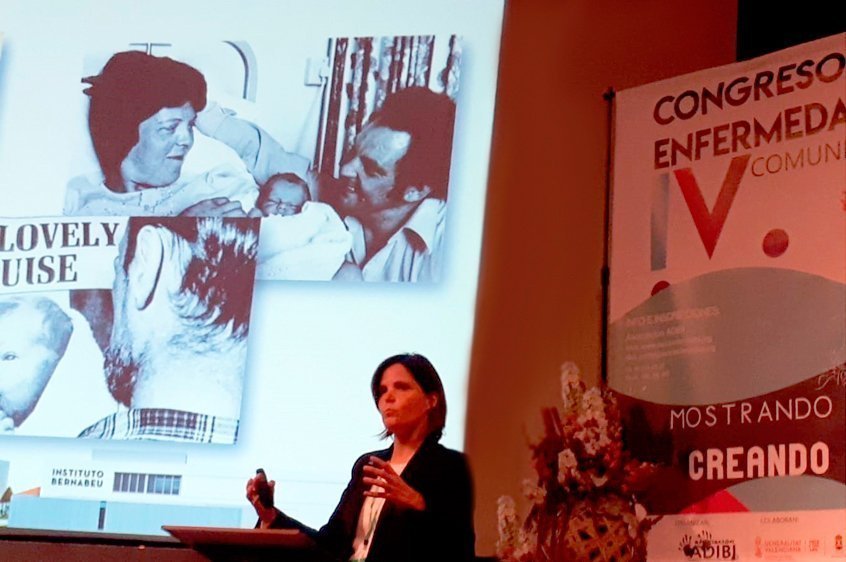The Rafael Bernabeu Foundation addresses assisted reproduction aimed at avoiding the transmission of genetic disorders at the 4th edition of the National Rare Diseases Congress
14-11-2018

The Rafael Bernabeu Welfare Foundation participated in the 4th edition of the National Rare Diseases Congress held in Ibi, a municipality of Alicante, on 30th and 31st October. It addressed the role of assisted reproduction treatment in avoiding transmission of genetic disorders. The congress aims to give people with rare diseases and experts in the field visibility, as well providing a forum for sharing information and analysis.
Rare diseases are pathologies that have a low incidence rate (under five cases per 10,000 inhabitants). They are heterogeneous and are not fully understood. Genetics is the origin of 80% of rare diseases and most manifest before the child is 2 years of age.
Belén Lledó, a molecular biologist and Scientific Director of IB Biotech, the genetics laboratory at Instituto Bernabeu, gave a presentation highlighting the techniques that currently stop genetic diseases from being transmitted. They are particularly recommended for people who have a hereditary disease or are carries of a disease. Also for people who have family members with a rare disease or who are rare disease carriers. Dr Lledó explained how pre-implantation genetic diagnosis (PGD) facilitates selection of embryos that are free of a given disease, as long as its genetic makeup is known.
Instituto Bernabeu has been studying the role of genetics in reproductive medicine and means of helping families with a hereditary disease for many years. The Rafael Bernabeu Foundation is particularly sensitive to social issues and it designed a pre-implantation genetic diagnosis programme that began in the year 2000 in order to detect genetic abnormalities that lead to hereditary diseases. Dr Lledó explained that, since then, it has been possible to give birth to children who are free of Marfan syndrome, leukodystrophy, retinoschisis, Huntington disease and Duchenne muscular dystrophy, amongst others. Amongst its objectives, the foundation includes financial support for reproduction treatment and PGD for families affected by a genetic disorder.
